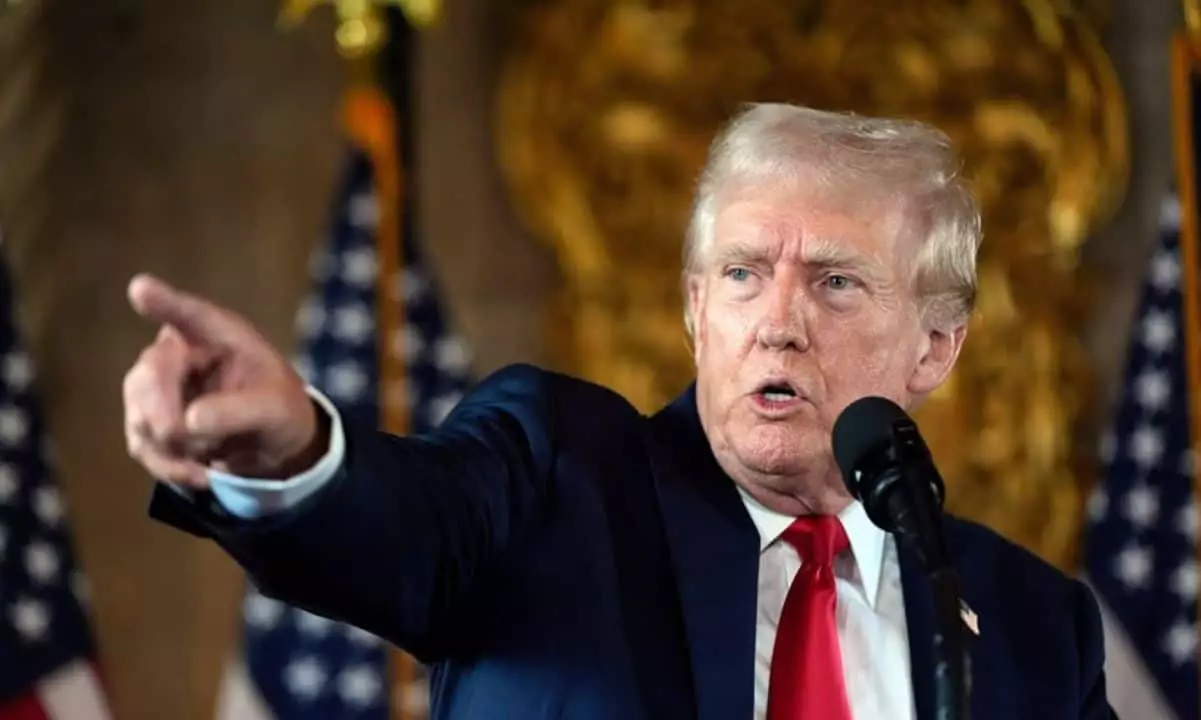In an era where the lines between politics, business, and technology are becoming increasingly blurred, the recent high-profile dinner at President Donald Trump’s Virginia golf club has emerged as a glaring example of ethical ambiguity. Boasting an astonishing sum of $394 million amassed through the sale of his TRUMP meme coin, this gathering has ignited fervent discussions on the very fabric of democratic values and the potential for corruption at the highest levels of government. The event attracted a mix of billionaires, Hollywood celebrities, and notable crypto insiders, but rather than serving as a beacon of patriotism and civic engagement, it raises an unsettling question: Is this merely a sophisticated ploy for influence peddling?
The guest list at this exclusive affair reportedly consisted of 220 elite TRUMP token holders, with identities deliberately obscured under pseudonyms that shielded many from public accountability. The sheer cost of admission to this presidential table—holding a hefty amount of meme coins—suggests alarming entanglements between the cryptocurrency market and political favoritism. Such practices leave a sour taste, as they intensify fears that foreign entities could exploit loopholes in U.S. campaign finance law to tip the scales in their favor. If politicians can cozy up to mega investors and foreign financiers, what does that say about their commitment to the American people?
The Uninvited Reality of Foreign Influence
To further complicate matters, blockchain analytics revealed that a significant portion of attendees likely hailed from outside the United States, raising alarms about the implications of foreign capital in American politics. As Congress wrestles with the pressing need to regulate cryptocurrency, the facility through which money can flow—albeit often anonymously—intrigues those who are tuned into national security issues. This situation illustrates an unsettling truth: many who amassed the wealth necessary to get a seat at this dinner acquired their tokens through offshore exchanges. Critics have rightly pointed out that such arrangements could allow foreign actors to bypass legal restrictions imposed by the Federal Election Commission.
Congress has responded not with silence but with action. A bipartisan group of 35 lawmakers has called on the Department of Justice to investigate potential violations of the emoluments clause. The audacity to commodify access to the realm of political power sets off alarm bells. Can one really trust a government when its officials may be lining their pockets with contributions from foreign interests? The notion that access to power has become something one can buy speaks volumes about the state of American democracy.
The Dinner’s Host and His Deflections
As attendees clinked glasses and flaunted wealth, Trump reportedly made a brief appearance to deliver remarks from behind the presidential lectern. Critics argue that such a display constitutes a dangerous blurring of lines—the office of the presidency shouldn’t be a mere extension of one’s business interests. Despite claims from Trump that he attended in a personal capacity, the heavy symbolism of the presidential seal in conjunction with profit-driven conversations casts a long shadow over the integrity of his role as a public servant.
When faced with mounting criticism, Trump dismissed concerns in customary fashion, sidestepping structural issues that could easily overtake the business-as-usual narrative. By boasting on social media soon after the event, it became evident that rather than feeling chastened or even concerned about the ethical implications, he was relishing the attention—further enhancing the perception of immorality surrounding the event.
The Political Fallout: Calls for Transparency
According to critics such as Representative Maxine Waters and Senator Elizabeth Warren, what transpired at this dinner was more than a celebrity-studded celebration; it was nothing less than an “orgy of corruption.” Their calls for transparency resonate with an electorate weary of political machinations that prioritize profit over principle. If the wealth amassed by attendees was indeed exchanged for political access, what does that imply for the next election cycle?
Calls for legislation such as the “Stop TRUMP in Crypto Act” reveal a desperate attempt to rein in this burgeoning threat to democratic ideals. Those who stand against these practices rally under a banner of accountability, pushing for proactive measures to ensure that no individual—whether domestic or foreign—can buy influence within the walls of government. The stakes are high as the public demands a government that stands with the people’s interests and not merely for the wealthy elite. The future of democracy hinges on whether it can combat not just overt corruption but also the structural incentives that allow these ethical breaches to thrive in the first place.

